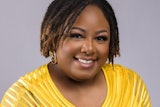Today, more than ever, the principles of diversity, equity, and inclusion (DEI) form a critical foundation preparing and supporting institutions of higher education to meet every changing demand of our society in this century. America is becoming more beautiful, and we need to broaden and sharpen our policy thinking to align with that reality.
Every day we see more of the fundamental challenges facing our fellow citizens of color and culture play forth on television, radio, and social media platforms. Sadly, these debates are often politicized and weaponized to divide, rather than being witnessed for what they are: a Great Awakening across our land about the value and potential of our rich diverse heritage.
 Gregorio E. O. Kishketon
Gregorio E. O. Kishketon
I am a member of the Kickapoo Tribe of Oklahoma, a Tribal Elder of the Water Clan. I am also a member of the Board Trustees at Saint Augustine’s University (SAU) in Raleigh, North Carolina. I joined the board to do something that has never been attempted. Drawing upon my experience with tribal governments and having worked for The Bureau of Indian Affairs/ Education in Washington, D.C., I am teaming up with Dr. Christine Johnson McPhail, president of SAU. We are looking to forge new paths through the HBCU system for Native Americans to reach higher education. This is uncharted territory, yet HBCUs offer distinctive cultural and social understanding, matched with outstanding scholarship, to a community that, for too long, has been marginalized and left behind by higher education. Such a cooperative approach offers HBCUs a new and unique source of student talent, financial resources and cultural distinctiveness that will further enrich the fundamental strengths of the HBCU system.
Dr. McPhail, the SAU admissions staff and I understand the need to be sensitive to the proud legacy of HBCUs, their alumni, current students and faculty. We believe the unique nature of these colleges and universities will be strengthened by more inclusion of Native American students. From bridging the gap between the tribes to aligning the higher education needs of the Native American community with the vision and fortitude of HBCUs, our initial conversations have revealed common ground, common needs and common goals.
Our initial efforts are simple and authentic. At SAU, we have proposed a “Family Day” for Native American student prospects. For Native Americans (and other minority groups), college is truly a family decision. Our hope is to build upon this strong family foundation and establish a relationship with the family, with the objective to support future generations to become SAU students. Eventually we want such a blueprint to encompass all minority groups that attend SAU.
I am the first Native American on an Historically Black College and University Board of Trustees in North Carolina. My grandfather and my great uncle both were chiefs of the Kickapoo tribes of Oklahoma. Many of my relatives were sent to the notorious Indian schools at Carlisle, Pennsylvania, Concho and Riverside, Oklahoma. My great grandfather testified before Congress on the terrible conditions of Carlisle, designed to educate us out of our native culture. The hard and painful lessons of the past, where a critical element of our American story was, by policy, systematically diluted or erased, needs to inform us today about the importance of opening doors to education and opening the minds of our Native American youth.
Native students need to be exposed to more than what has been their norm. There needs to be a more robust educational pathway that is accessible to these students, many of whom have not lived beyond a reservation or native lands. This is where a relationship with HBCUs offers new hope. What better place to find true cultural sensitivity and scholarly awareness than in our great HBCUs, what better place to live the rising vision of DEI but in the hallowed halls of these schools, filled with young minds eager to embrace all they have to offer. Higher education institutions, such as SAU, are thinking boldly about the future and about the opportunity to address educational inequality in a way that will solidify their leadership as crucibles of knowledge, opportunity and our distinct and important American culture.
Gregorio E. O. Kishketon, is a member of the Kickapoo Tribe of Oklahoma, a Tribal Elder of the Water Clan and member of the Board of Trustees at Saint Augustine’s University in Raleigh, North Carolina. Kishketon is also a U.S. Marine Corps veteran and currently serves as a VHA FOIA Officer within the Office of the Assistant Deputy Secretary for Health and Health Informatics.
The Roueche Center Forum is co-edited by Drs. John E. Roueche and Margaretta B. Mathis of the John E. Roueche Center for Community College Leadership, Department of Educational Leadership, College of Education, Kansas State University.
This article originally appeared in the November 11, 2021 edition of Diverse. Read it here.















